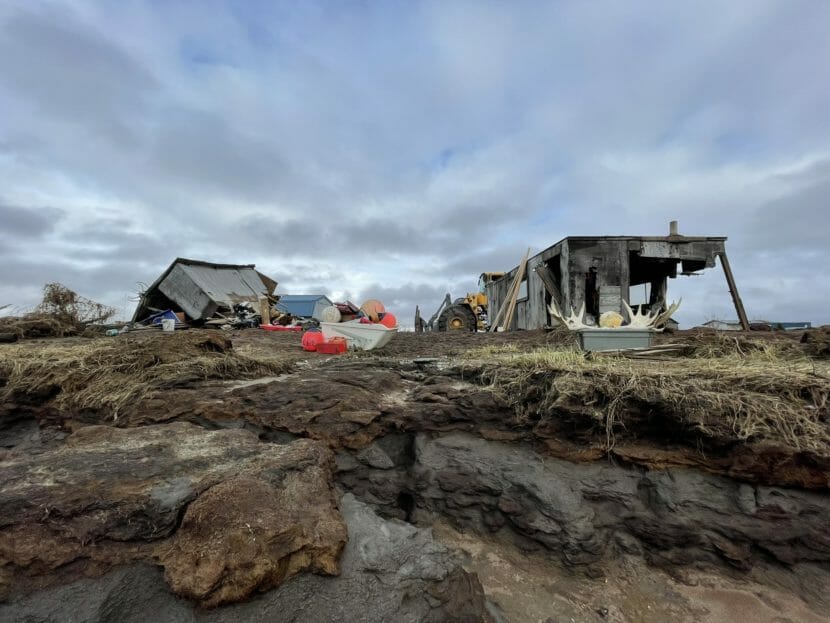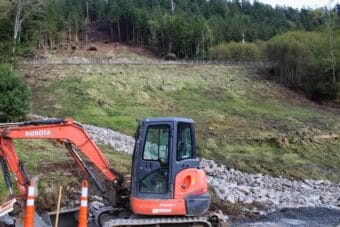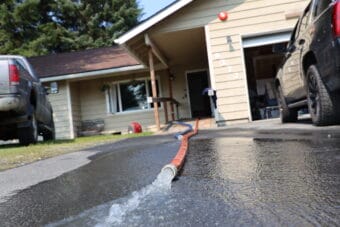
The Federal Emergency Management Agency will overhaul its disaster assistance program, in response to feedback from disaster survivors and an uptick in extreme weather events brought on by a changing climate. Over the last two years, thousands of Alaskans have applied for individual disaster assistance after flooding and a historic storm on the state’s west coast.
“We listened to the criticisms we received from stakeholders, as well as from the media, and we took it as a challenge,” said FEMA Administrator Deanne Criswell during a press conference on Jan. 18. “We took it as a challenge and we wanted to be big and bold, so that’s what we did.”
Secretary of Homeland Security Alejandro Mayorkas called the change “transformational.”
“For too long and in the face of too many natural disasters and extreme weather events, survivors have had to overcome many barriers to access the federal assistance they need,” Mayorkas said.
FEMA has announced six major changes to its individual disaster assistance program. The agency currently requires disaster survivors to apply for a loan through the Small Business Administration for personal property damages. Public feedback that the process was cumbersome means that the agency will eliminate the requirement.
The agency will also offer $750 payments to households to cover immediate expenses in the aftermath of a disaster.
“One of the things that I have consistently heard, that my team has consistently heard from survivors, is that they needed funds for most pressing needs and needed it faster than we were providing it,” Criswell said.
The lump-sum payments aim to help survivors access things like diapers, baby formula, and emergency supplies in the days immediately following a disaster.
The policy changes apply nationwide, so they aren’t tailored to specific challenges in the northernmost state, but Criswell said that she’s aware of Alaska’s unique needs.
“We know that everybody’s needs are different, and particularly in Alaska they have very unique situations in how they are able to start their recovery process,” Criswell said. “This will help enable them to utilize their resources better within their own communities to help them on their recovery journey.”
In September 2022, Typhoon Merbok hammered a vast swath of Alaska’s west coast. In the year after Merbok, many survivors struggled to appeal applications they made to replace subsistence hunting and fishing gear. The agency plans to simplify the appeal process when applicants are denied.
Some families displaced by Merbok also remain without permanent housing solutions. FEMA said that temporary housing assistance applications will become more streamlined. The agency will also create a new Displacement Assistance program to provide immediate funds to help pay for housing, including costs associated with staying with family or friends.
Criswell said that the changes are timely as climate-change-driven natural disasters and extreme weather continue to batter communities across the United States.
“I would say that the fact that Mother Nature is not letting up, the fact that we are breaking records year after year, as disasters become more deadly, more frequent and more severe, we need to be better prepared and better informed to recover from natural disasters faster and more effectively,” said Criswell.
The changes go into effect this spring, but are not retroactive. They apply only to natural disasters that occur on or after March 22, 2024.


